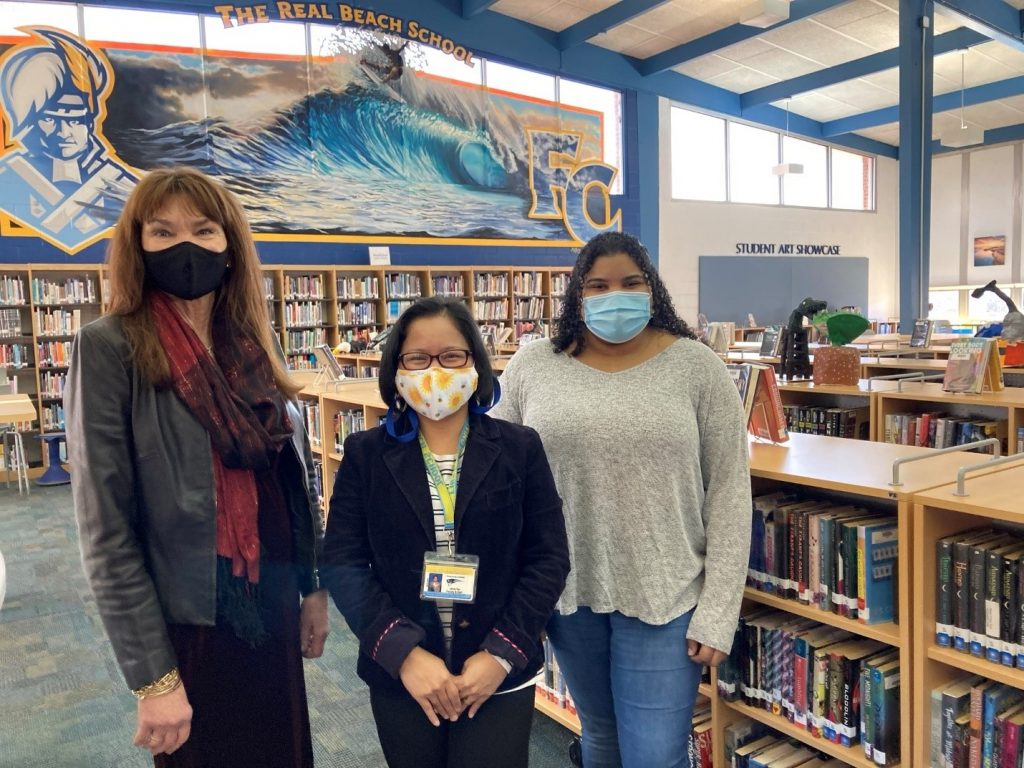First Colonial and Floyd E. Kellam high schools have earned the national 2020 AP Computer Science Female Diversity Award.

It’s the second consecutive year that the College Board recognized First Colonial (FC) for the outstanding work teachers are doing to encourage female students to pursue careers in programming – making FC the only school in the region to receive back-to-back distinctions. The success is due in large part to computer science teacher Jenny Yap, according to FC’s principal, Dr. Nancy Farrell.
“Mrs. Yap is such a great role model,” she said. “Computer science is such an important field of study, because computer programming is a part of everything in today’s world.”
Young women have made up more than 70% of the 65 students taking Advanced Placement (AP) Computer Science Principles at First Colonial the past two years. In 2018 and 2020, the pass rate on the AP exams was over 90%, and it was 100% in 2019.
“I’m really happy about that,” said Yap. “My students are very involved in their classwork.”
Senior Alianexis Hernandez-Stanley started considering a career in computer science after taking Yap’s class, and she especially enjoyed using her programming skills to build a soundboard.
“I was excited to create something new,” said Alianexis, who goes by “Ali.” She is enrolled in the Legal Studies Academy and the Virginia Teachers for Tomorrow program. After college, she wants to be a software engineer and help more people have access to helpful technology.
It’s the same type of empowerment that Yap encountered when deciding to pursue mathematics and computer science at the University of the Philippines.
“At the time, computers were new to many people in the Philippines,” Yap explained. “I saw how computers could make people’s jobs easier, so I became very interested.”
Dr. Sharon Shewbridge, director of instructional technology at VBCPS, said she’s glad the College Board recognized the computer science programs at First Colonial and Kellam. Research shows that female students who take AP Computer Science are more likely to major in the field in college and succeed in high-paying, in-demand jobs in the future, according to the College Board.
Shewbridge believes that success on the high school level is a direct result of how the division encourages students to develop their technology skills early on.
“I’m humbled by the work that happens in elementary and middle schools with STEM camps,” she said. “The work we’re doing with our younger grades has encouraged girls to stay the course and consider careers in science and technology.”
Shewbridge is inspired by Ali’s desire to use her skills to embolden future generations.
“I love how she’s seeing that she can make a difference in her own world by sharing her knowledge to make other people’s experiences better,” she said.
